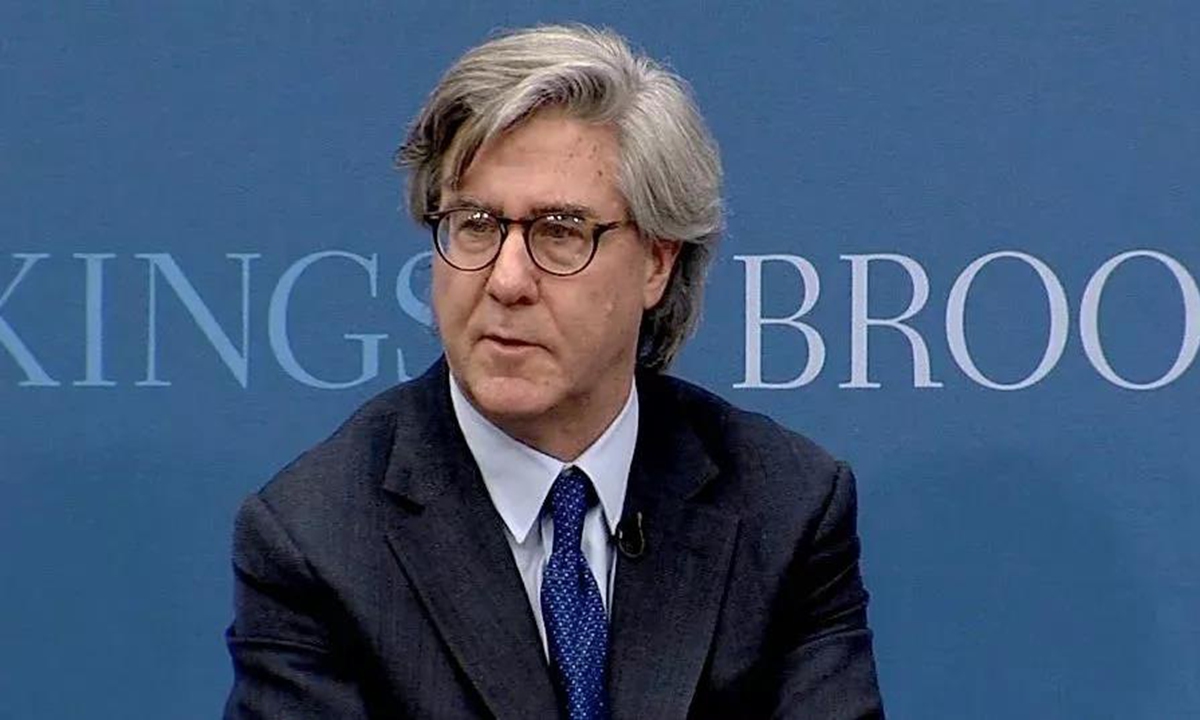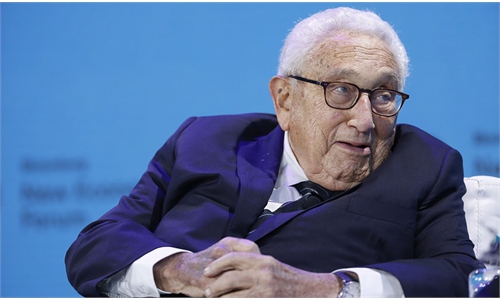
Photo: Screenshot of John Thornton
The release of Huawei's Chief Financial Officer Meng Wanzhou means one of the most thorny issues between China and the US is resolved. This paves the way for further cooperation between the two countries on other topics.
John Thornton, a "Wall Street veteran" and former Goldman Sachs president, undertook a six-week trip to China which included meetings with "key officials," according to an exclusive report by the South China Morning Post (SCMP) on Monday. Thornton visited Shanghai, Beijing and Xinjiang. The SCMP quoted a "person familiar with the matter" who requested anonymity, saying, "Thornton's trip was similar in nature to [Henry] Kissinger's secret trip to China [in 1971]."
Thornton is an important figure of the Wall Street, and the news of his visit to China is worthy of attention. Thornton used to have a relatively close relationship with some Chinese leaders. He may not be able to represent the US government, but judging from his status, he can at least provide his feedback to the US about what he has learned about the real situation in China.
But it is still somewhat exaggerated to declare the significance of Thornton's visit to be similar to Kissinger's. When Kissinger visited China, he was then US national security advisor. Thornton has no such official status. The two visits are comparable, but not that similar. After all, Kissinger's visit to China could quickly result in a China policy. Thornton, however, may not have the ability to do so even though he has some influence on US policymakers.
Whether or not China-US relations can be eased does not depend on a single person or two. It is the overall situation that matters. Washington has been clamoring to speak "from a position of strength." The US' China policy is mostly based on its assessment of China's national strength and its own strength. The US will find it hard to achieve its desired results when it truly recognizes its own shortcomings.
China-US economic and trade relations are seen as the ballast stone of bilateral relations. Some say that Thornton's visit to China is a sign that Wall Street's interests will be affected if China-US relations continue to deteriorate, so that the "stabilizer" has started to work. It makes sense. But in the US' logic, the interests of military-industrial complex come first. The interests of finance and industry fields come in second place.
When a new US president takes office, the first pressure he faces often comes from the military-industrial complex. Therefore, the new US president will tend to create all kinds of tensions at the beginning of his term to pave the way for the interests of arms dealers.
For now, US President Joe Biden has basically completed this job. He did it even at the expense of offending traditional allies, such as stabbing in France's back by offering US nuclear power technology to Australia and requesting it to break the submarine deal with France. After satisfying the military-industrial complex, Washington will start to take care of interests of industrial and commercial groups. Voices of those in charge of economy, trade and finance will gradually be heard.
The release of Meng and Thornton's visit indicate that the cooperative atmosphere between China and the US is gaining momentum. The various alliances led by the US mainly serve to satisfy the military-industrial complex and do not hold much significance. China-US relations can be viewed with prudently positive attitude. In my opinion, both countries have a bottom line - neither side will resort to war. It is believed the two will have some concrete negotiations on economy and trade in the fourth quarter of this year.
This year marks the 50th anniversary of Kissinger's secret trip to China. The visit laid the foundation for the visit of former US president Richard Nixon and the normalization of ties between China and the US. Under the current China-US relations, Thornton's visit may not carry as much significance as Kissinger's visit. What is significant now is not a specific visit. However, after eight months of evaluations, it remains to be seen whether or not the US could realize this - being tough on China will not bring itself any positive results.
The author is a research fellow at the Chinese Academy of Social Sciences. opinion@globaltimes.com.cn

